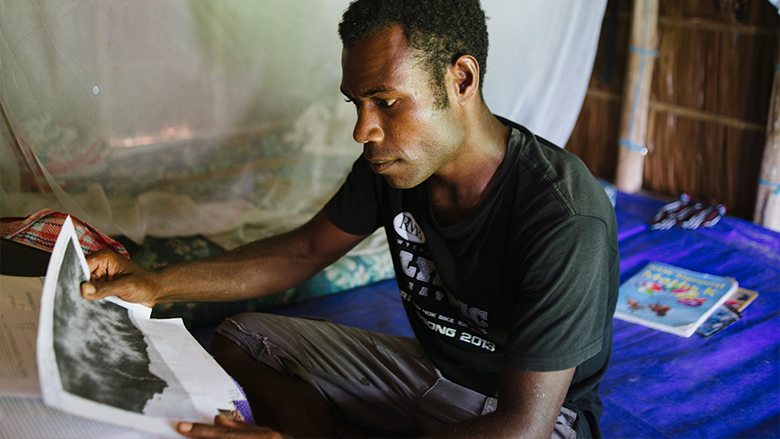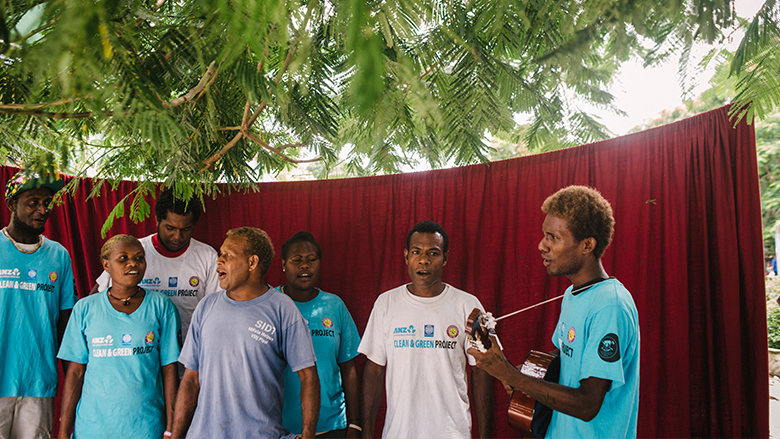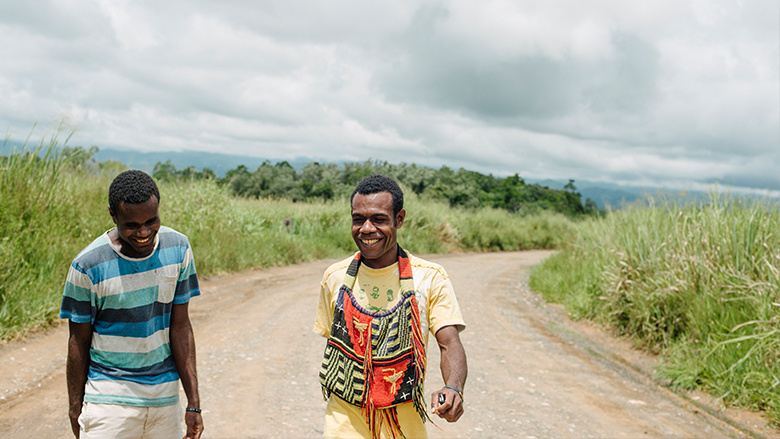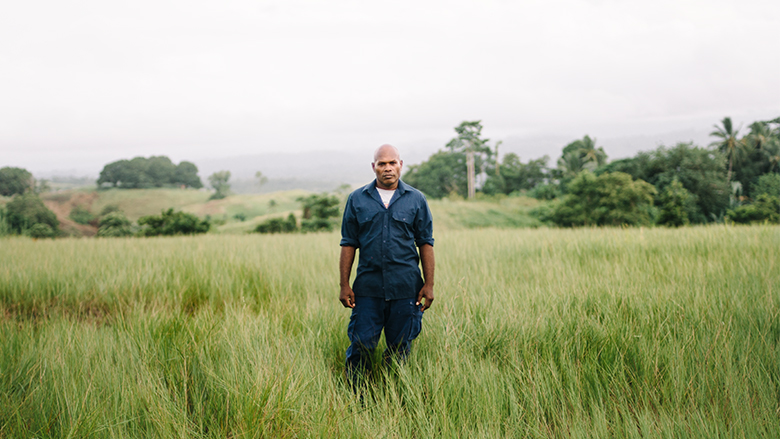Solomon Islander Patterson Sikua vividly remembers the day that The Tensions came to his community. He was a Grade Six student in Kollina, a village in the remote Weathercoast region on the south side of Guadalcanal Island.
Ethnic conflict between Guadalcanal and Malaitan militants already prevented villagers from traveling to other markets to sell produce, and caused shortages of medicines and vaccinations. On that particular morning, he heard gunfire.
“I thought my life would end. I thought if I stayed, the bullet would hit me,” Patterson said. “I stood up, ran away and hid behind a tree. I didn’t go back to school for at least a year. It took six to seven months for me to stop feeling frightened. My fear of violence was always there. It created a lot of stress and anxiety.”
The five-year conflict finally ended in 2003 with an international intervention, and Patterson’s life changed again.
Like many people from remote, rural areas across Solomon Islands, he moved to Honiara, the capital, for better education opportunities. Initially he worked at a palm oil plantation to fund his school fees, and then his parents were able to pay for the completion of his high-school certificate.




